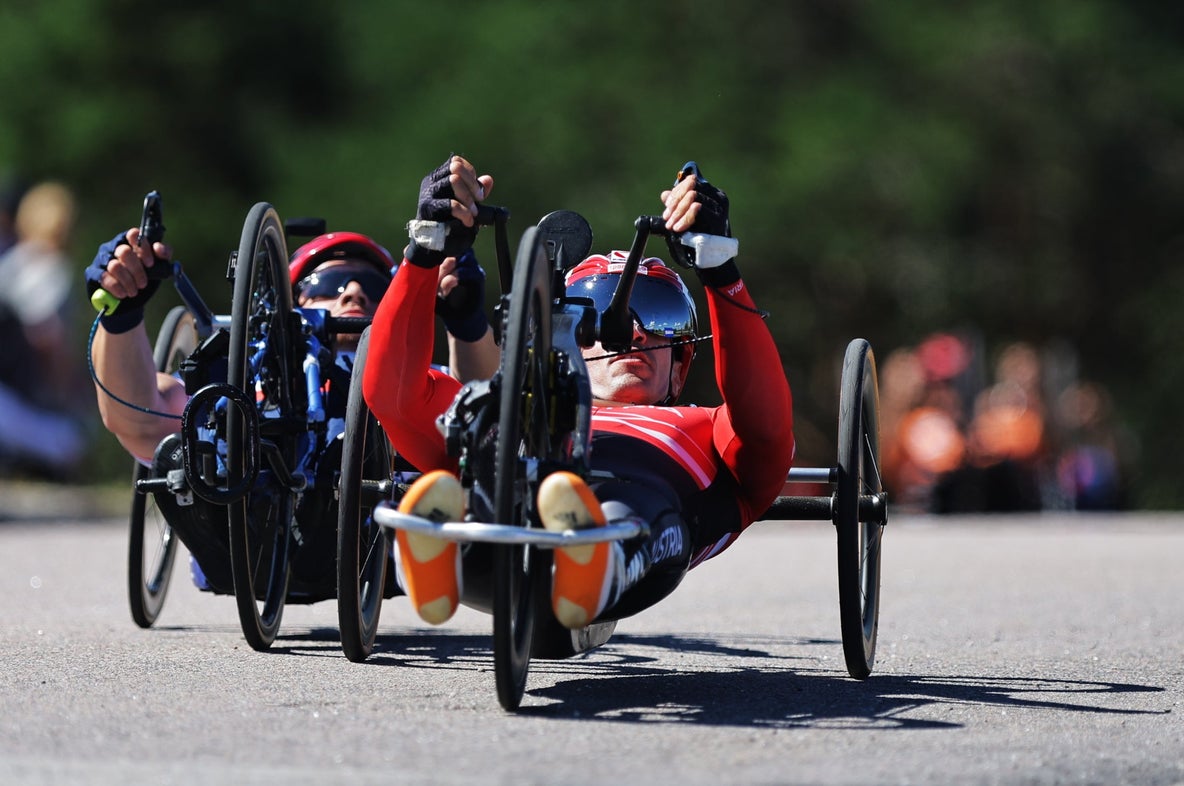Deaf BMXing: "I use shadows to know where the competition is"
Can you race BMX when you're deaf? Sure, you can. Take it from Tim Stöckl, an 11-year-old BMXer from Vösendorf near Vienna, who's developed a bunch of smart tricks and steezy riding skills to get him round the BMX track, fast.
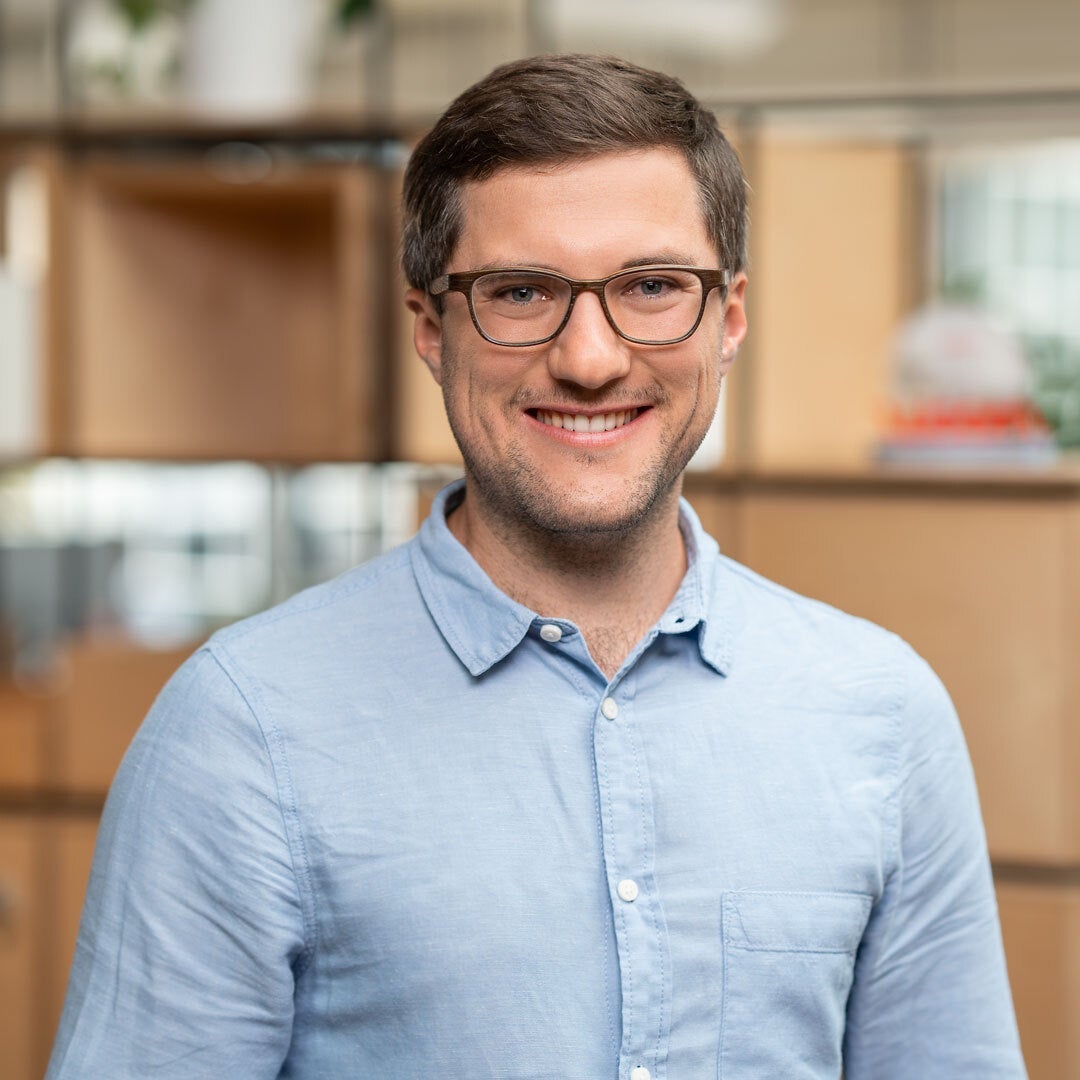
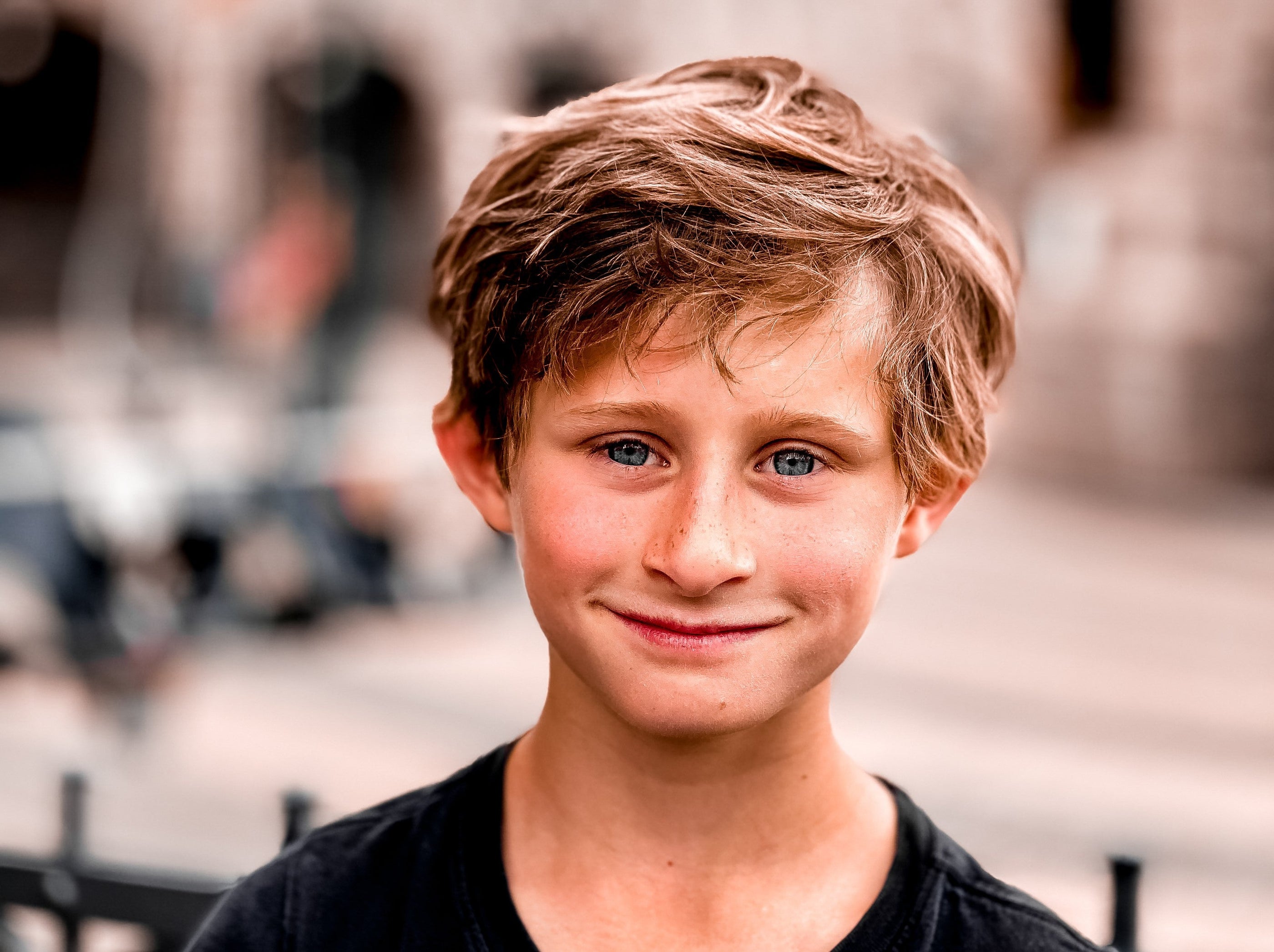
Pulling tricks on his BMX since the age of six
As a young child, Tim and his parents came across their local BMX track in Vösendorf. Sat amongst fields, tennis courts and next to a pizzeria, this BMX (Bicycle Motocross) track was much like any other – dusty, full of banked corners made of concrete and mounds of earth – and it immediately appealed.
"Would you like to have a go?" His parents asked as they watched the kids and teenagers practising jumps.
The then-five-year-old Tim watched the action for a while before deciding that it looked fun – and seeing as he was already a pretty active kid, there was no harm in giving it a try.
The decision was made. It was the moment he fell in love with cycling.
Ever since that day, Tim has become something of a permanent fixture at the BMX track. As soon as school is out, you'll find him in the saddle of either his BMX or his mountain bike. A few years ago, he started racing too.
But what makes Tim's story so interesting is that he was born with a hearing loss and wears a hearing aid. However, when it comes to sport – particularly competitive sports – devices like this aren't always as useful as they seem. Especially not those made for children.
Children's ears are still growing, you see. Unlike conventional adult-sized aids that sit in the ear, children tend to use behind-the-ear hearing aids.
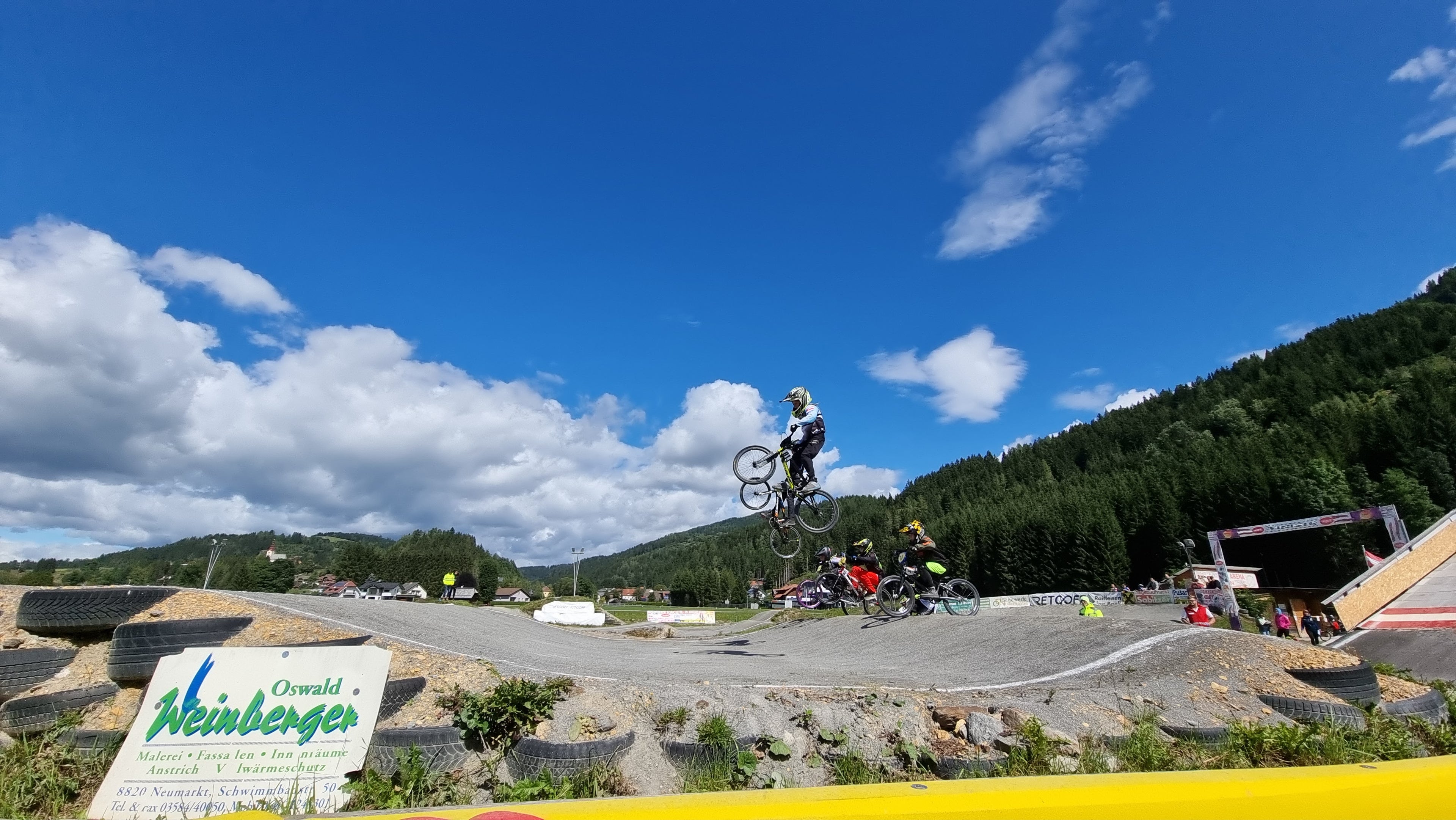
Tim (closest to the front) and the rest of the kids often jump metres into the air while racing.
How can Tim race with a hearing loss?
"I'm not allowed to use a hearing aid while racing," explains Tim. "They're also really uncomfortable under my helmet and can get damaged by sweat."
Once Tim puts on his helmet, he is almost completely deaf.
This problem is most acute while he's waiting on the start line for the sound of the starting signal that he struggles to hear.
"I do my best to listen and keep my eyes focused on the start light. Depending on my starting position, I sometimes have to turn my head to see it. It's definitely a bit of a disadvantage because the other kids can look straight ahead."
Tim isn't deterred by what happens on the start line though. Once the signal has been given, he is straight out the gate and onto the pedals, riding as fast as he can. When it comes to figuring out the whereabouts of his competitors, he's developed some clever methods involving sharpened senses and shadow hunting:
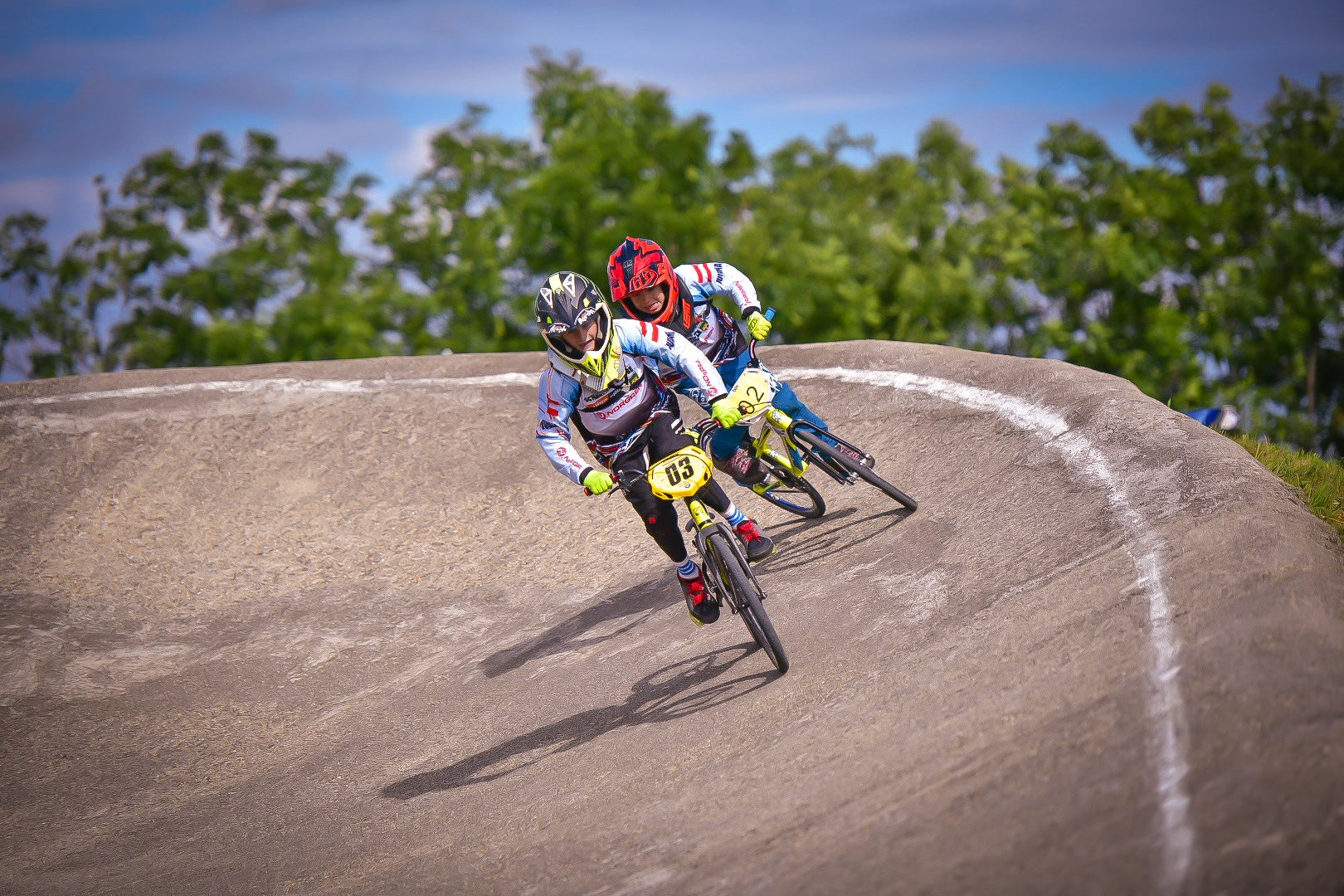
Unable to hear while racing, Tim focuses on where the shadows of his competitors are.
"Once I'm on the track I concentrate more on the shadows of the competition rather than trying to listen out for them. I have to rely on my senses. If there's someone catching me or getting close, I can tell because my heart rate shoots up."
In bright sunshine, Tim is able to spot the competition thanks to their shadows on their ground – it's a subtle skill he's clearly proud to have honed.
But it's rendered significantly harder in cloudy conditions. "You obviously can't look behind you," he expands, "because you'd be overtaken immediately. I once lost two places just because I turned my head to check."
In situations like this, he has no choice but to rely on his peripheral vision while cornering: "On the bends I can see the riders behind me out of the corner of my eye," Tim says.
The biggest challenge is in training
Tim gets most frustrated with his hearing difficulties at training sessions. "If I'm not stood close enough to the coach, I sometimes miss the instructions and can't always lip-read well enough."
He therefore has to watch what the other kids are doing and copy them at times, but it's not always possible. "It makes me really cross when I accidentally do something wrong," he admits.
His mother nods her head in agreement:
"Not everyone knows about Tim's hearing loss, or perhaps they simply forget it, but it does happen that people accuse Tim of being distracted or inattentive in training, which is certainly not the case."
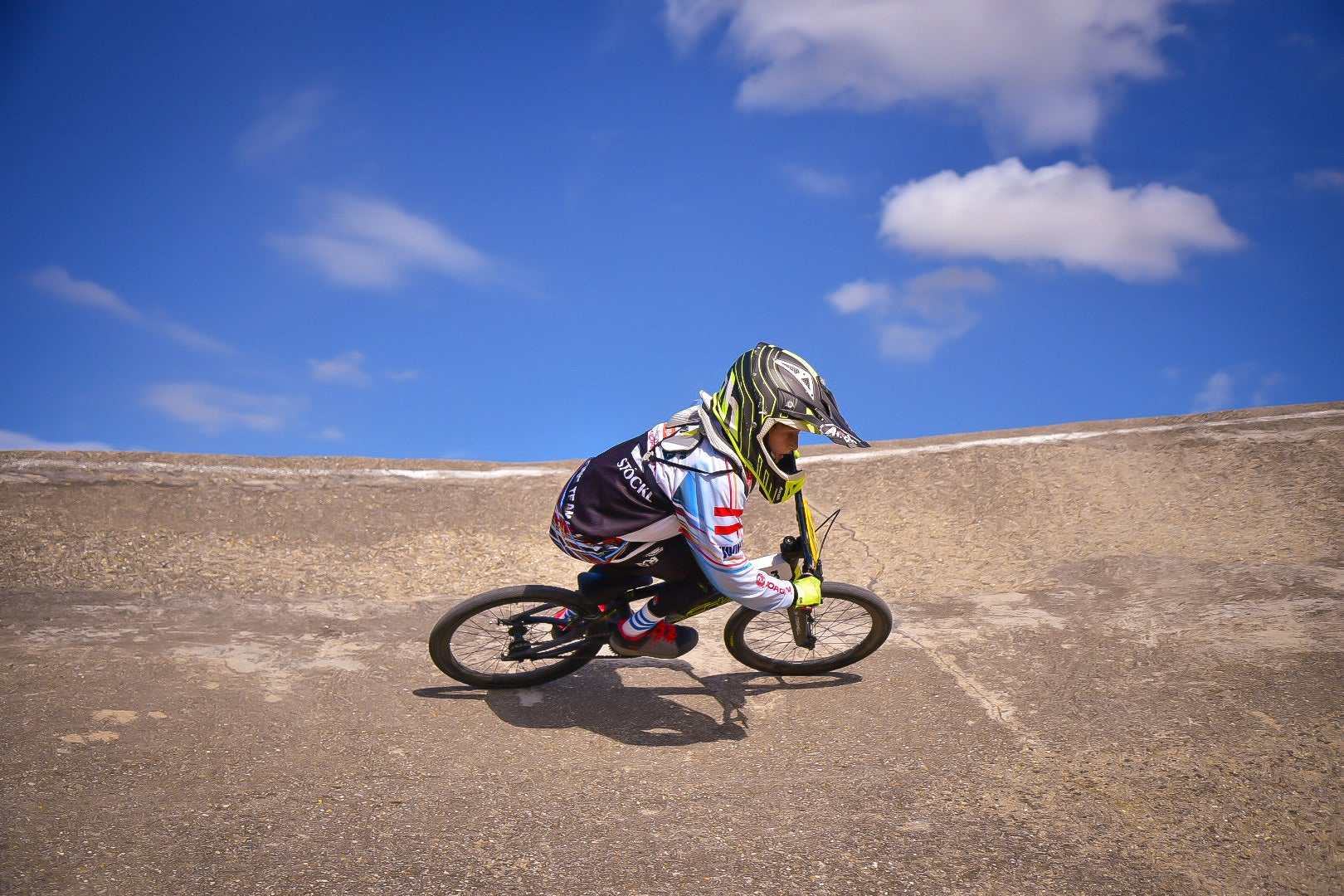
When Tim is a long way from his coach, he doesn't always hear the instructions.
When race info is given on the PA system
"The fact that I have a hearing impairment is in a tiny drawer in my brain," explains Tim. "All the rest of the drawers are much bigger – it's only a tiny fraction of me – so I don't usually let it bother me."
But in his life as an athlete, Tim is forced to face it head-on.
"I was at the World Championships in Nantes recently, where all the announcements for our start numbers and gates were given verbally and pretty quickly, too. There was no info board and I only had a few seconds to get in the right position on the start line."
This sort of situation could have caused big problems for Tim. The starting zone is usually reserved for athletes and some select support staff who may not have been aware that the 11-year-old would have had difficulty understanding the announcement.
"Fortunately, my dad had a pass with access to the start zone, so he was able to help me get sorted and into the right lane." Crisis averted.
Society decides what disability means
The situation in Nantes is a prime example of what it's like to live with a disability.
It often has less to do with the physical (or mental) impairment that prevents an individual from taking part in social or sporting activities and more to do with a collection of conditions – often created by society.
In other words:
A disability is what we – collectively – make it, which means it's up to us to create conditions that are either inclusive or exclusive.
In the UN's Convention of the Rights of Persons with Disabilities, the preamble says exactly the same thing: It states that "disability results from the interaction between persons with impairments and attitudinal and environmental barriers that hinders their full and effective participation in society on an equal basis with others."
More openness and flexibility would be good
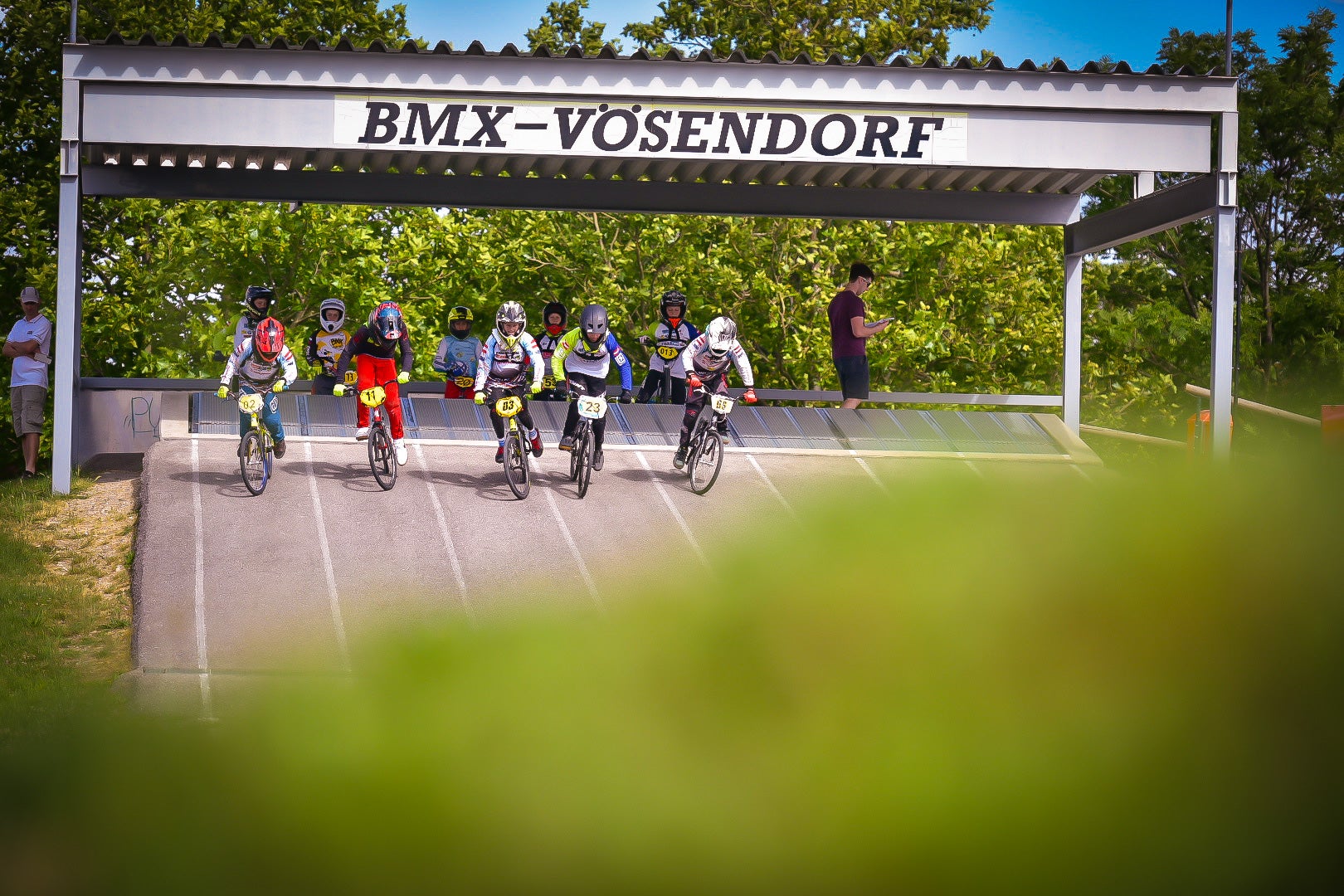
Does the starting signal have to be a purely auditory process or are there other options?
In order for things to get better, Tim doesn't think it will take much – even some good will and a decent portion of curiosity from non-disabled people would make a difference.
If he had his way, people would be "less biased and inflexible against people with disabilities."
His parents take a similar stance, agreeing they'd like to see more openness and flexibility instead of uncertainty or fear – the two feelings that usually come to fore.
"Dealing with children with disabilities can be a new thing for lots of people. One way to improve this situation could be by offering targeted awareness training," adds his mother.
How does inclusivity work in sport? It often only takes a little bit of creativity and empathy in order to open up access for people with disabilities. At the BMX championships in Nantes, for example, it would have been sensible to not only verbally call out the start numbers and positions but to print out and publish the official list.
Tim's biggest BMX successes to date
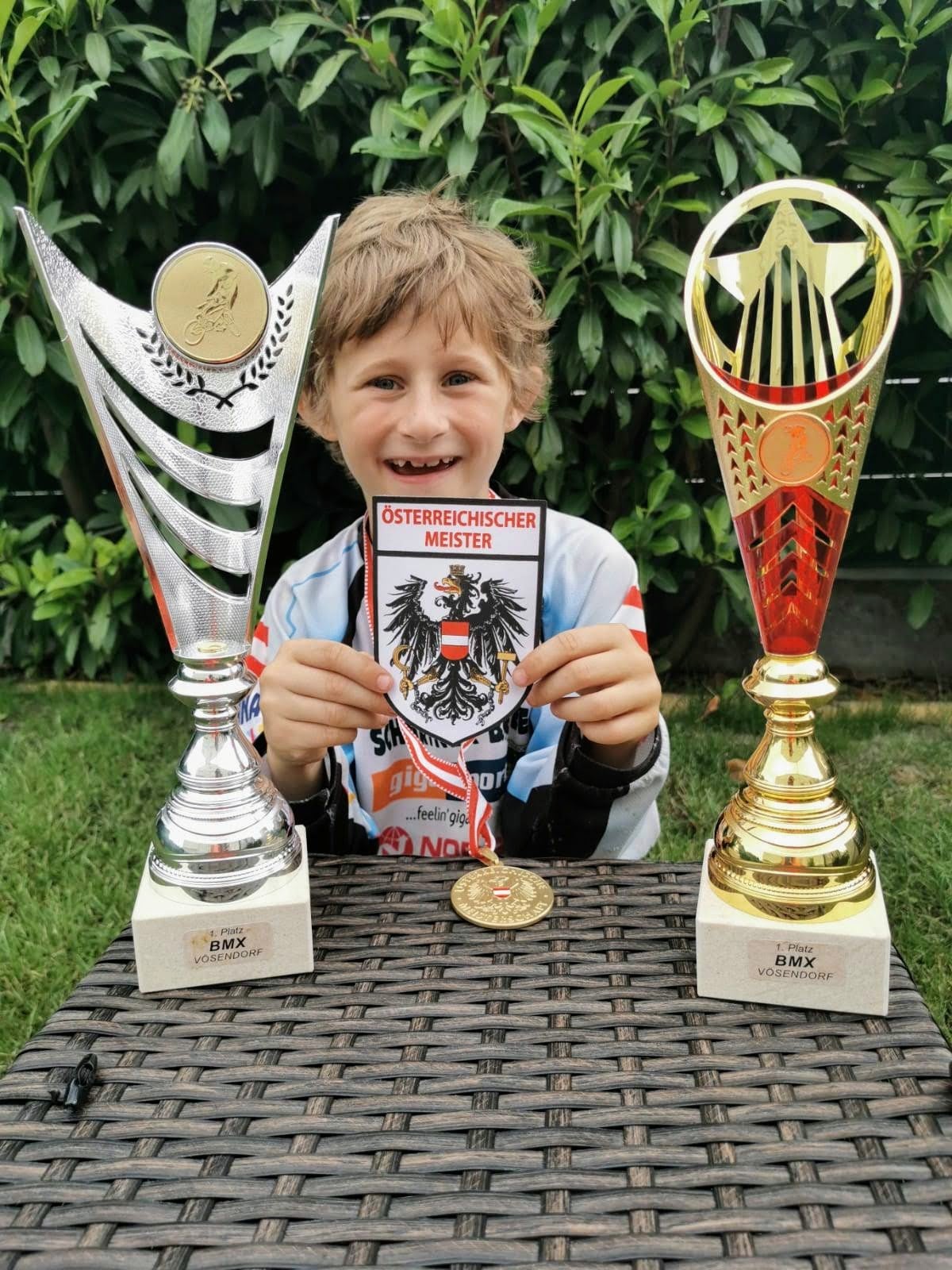
At the age of eight, Tim Stöckl won his age category at the Austrian Championships.
When it comes to showing what is possible, Tim gives us a masterclass. The boy from Lower Austria regularly finds himself on the podium and has already won the regional and Austrian national championships, claiming the title of Boys U8 National Champion.
He has no doubt about his next goal either:
"I'd be stoked if I make it to the finals at the European Cup in Verona. Out of 128 riders, only eight make it to the last round. Up until now, my best result has been getting through to the quarter-finals. I've got to get further next time!"
Update, February 2023: Tim's passion for cycling really made a mark on us during the interview. So much so, in fact, that we've decided to bring him into the woom family and help support his progress. As of January 2023, Tim is the first-ever woom-sponsored rider.
Kurze Fragen an Tim:
- Besides cycling, how else do you spend your time?
Trampolining and freestyle skiing in winter. - What school do you go to?
I go to a high school that's focussed on sports. - What extra sport subjects do you study?
This year I've picked trampolining, circus skills, and basketball as my optional subjects. - Would you like to be a pro cyclist?
That would be cool, but I'd also like to learn more jumps on the trampoline. - Do you have a dream?
I'd like to become a space scientist.

